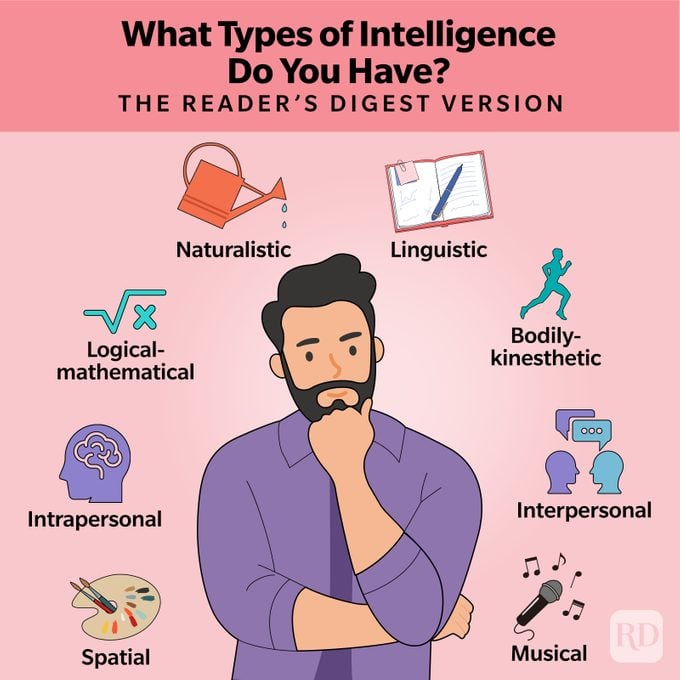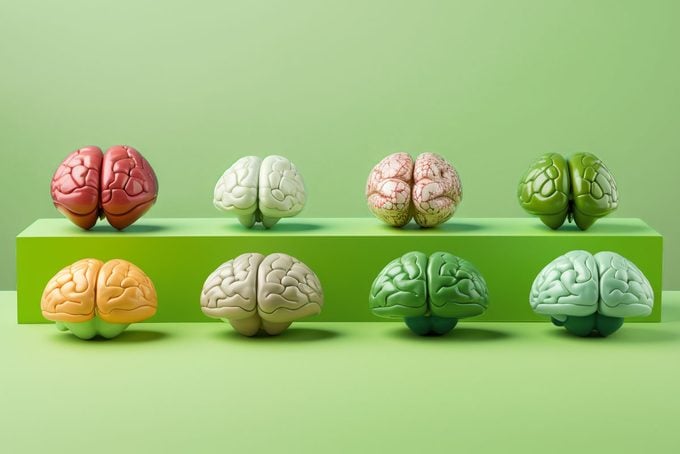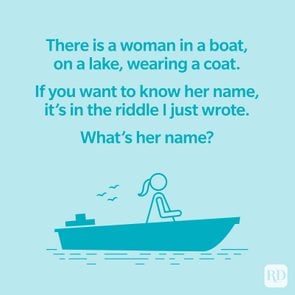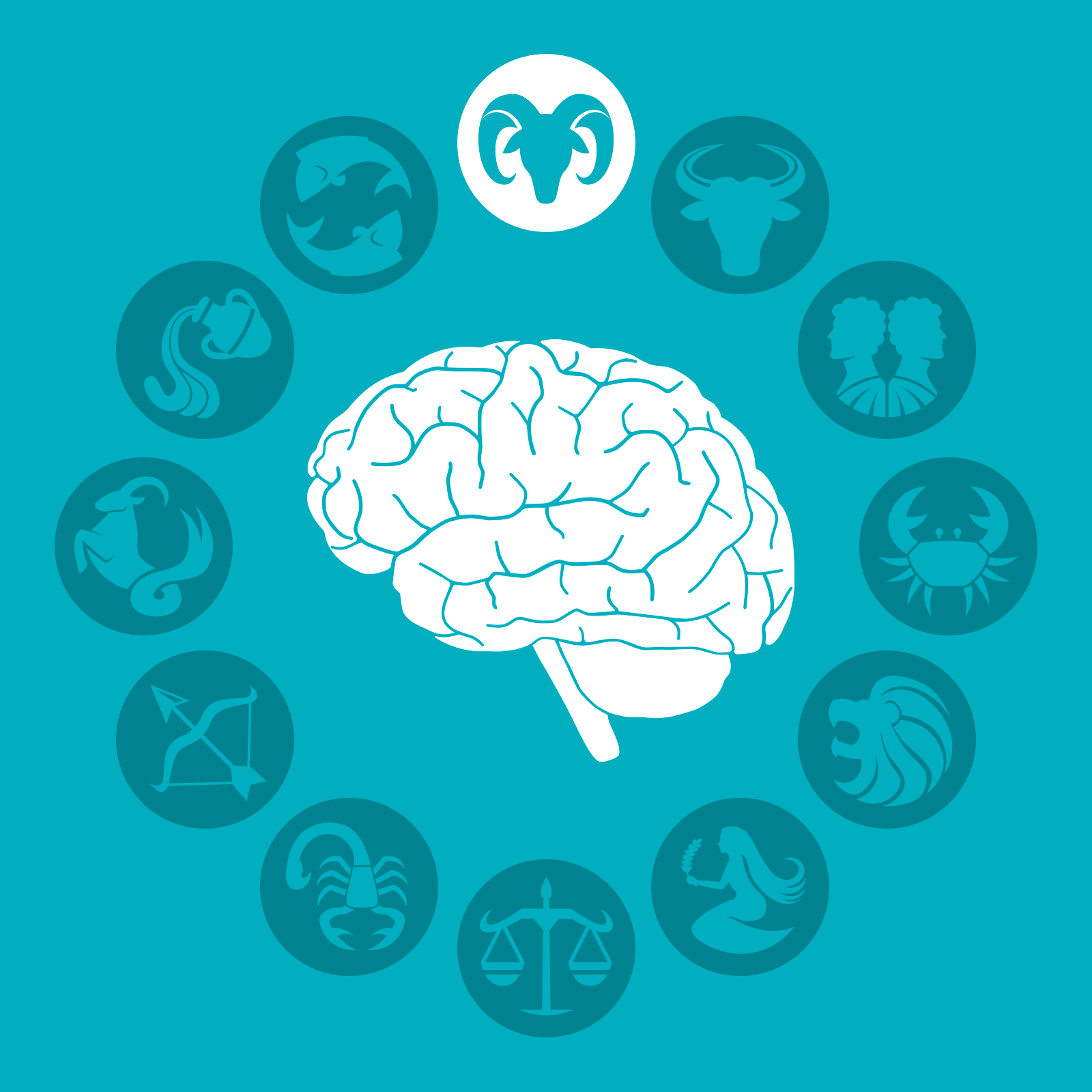There Are 8 Types of Intelligence: Which One Is Your Strength?
Updated: Apr. 24, 2024

IQ isn't everything. Researchers say everyone has eight types of intelligence—which do you rank highest in?
Everyone has heard of IQ, or intelligence quotient, a fixed number that’s supposed to reveal how smart you are. But what if there was another way to look at intelligence—what if instead of an overall number, there were eight distinct types of intelligence that you could change and improve over the course of your lifetime? That’s the idea behind multiple intelligences.
Multiple intelligence theory views human smarts as different categories, with each person having a different level of aptitude in each. In the theory, “a person’s different intelligences are seen as relatively autonomous, meaning each one of us can have different strengths and weaknesses among the different intelligences,” says Robert Yeilding, a licensed clinical psychologist in California.
Looking at intelligence this way can help identify your personal strengths and weaknesses. “Multiple intelligences can be very helpful to think about for yourself and your cognitive strengths and style in terms of a potential career,” Yeilding says. Plus, if you want to boost your smarts in a specific area, you can bolster the types of intelligence you don’t have a natural proclivity for. Want to improve your linguistic intelligence? Work on how to improve vocabulary or how to read faster. Want to get ahead at work? Though emotional intelligence isn’t directly part of the theory, the concept would fit in with high interpersonal intelligence.
Let’s look at how the theory of multiple intelligences was developed, what the eight types of intelligence are and which ones you have.
Get Reader’s Digest’s Read Up newsletter for knowledge, humor, cleaning, travel, tech and fun facts all week long.
Gardner’s theory of multiple intelligences
Before you can get a handle on your own intelligence profile, you need to know where these types of intelligence came from and why there’s more than one way to be smart.
The history
The theory of general intelligence was born in the early 1900s, when French psychologist Alfred Binet came up with an intelligence test to determine which school kids needed special education—and IQ has been accepted nearly as fact ever since.
But in the 1980s, Harvard psychologist Howard Gardner wondered if there was another way. “He just started thinking about why is it that, as human beings, we seem to have these very staggered profiles of problem-solving skills, and have proclivities in some areas more than others,” says Scott Seider, an applied developmental psychologist and associate professor at Boston College who worked with Gardner at the Harvard Graduate School of Education.
It makes sense, right? We all know that person who’s super good with words and can solve even the hardest riddles—but can’t remember how to do basic science.
Gardner also noticed that the people around him, for example, might demonstrate tremendous skill when it comes to music but a much lower level of skill when it comes to math. Or they may be able to dance ballet at an extraordinarily high level but not be particularly good at chess. “I think that got him thinking about, Is there a more useful way of conceptualizing intelligence than this general intelligence perspective?” Seider says.
The theory
The theory Gardner came up with suggests that “intelligence is more pluralistic than it is commonly conceived of in Western societies,” Yeilding says. Instead of focusing on just one way to be smart, Gardner developed criteria for what makes separate, identifiable types of intelligence.
“He looked at empirical literature across psychology, anthropology and evolutionary biology,” Seider says. “He thought that for something to represent a distinct intelligence, there should be sort of some indication from a cognitive science perspective that that particular problem-solving skill corresponds with a particular element of our neural structure in the brain.”
Gardner also reasoned that each intelligence should show up independently in prodigies or be affected in stroke victims, and it should also have had an initial purpose for survival.
The types of intelligence
The criteria for the types of intelligence may seem random, but it’s not as if Gardner kept adding many more categories over the years. Since the first seven, published in his 1983 book Frames of Mind, he’s only added one, naturalistic intelligence, which he named in 1999. But the number of intelligences isn’t set in stone, either. “I think he fully expects that as we learn more about human beings and the brain and intelligences the list will change in various ways,” Seider says.
So, what are the types of intelligence exactly? “The identified intelligences include linguistic, logical-mathematical, spatial, musical, bodily-kinesthetic, naturalistic, interpersonal and intrapersonal,” says Yeilding.
Compare that with IQ, which says there’s one general factor of intelligence, or “g,” that encompasses everything. Here’s another way to think of it: “In general intelligence, you would think of our brains as a single computer, a single processor, that you can apply to all different things,” says Seider. “Advocates of multiple intelligence theory think folks have eight or more relatively independent computers up there that all process at different speeds.”
The critics
The theory of multiple intelligences, or MI, is not without its critics, though. “Some of the criticisms of the theory involve a lack of sound empirical evidence regarding their differentiation from each other and whether they are actually distinct from a general intelligence factor,” Yeilding says, noting that measurement is also a drawback. “Knowing which intelligences are strengths or weaknesses of yours is not easily assessed, as they are described as needing time and assessment over multiple contexts and within a relevant environment.”
For example, if you were going to test someone’s bodily-kinesthetic intelligence, you might need to see how well they can throw a football—or perform delicate surgery in the OR.
The proponents
Advocates of the different types of intelligence argue that even though it’s been difficult to come up with a test to measure how they work, the theory is backed by research.
“MI is based on hundreds of empirical studies across the social sciences and biology,” says Katie Davis, a research scientist and associate professor at the University of Washington Information School who also previously worked with Gardner at Harvard. “Because it’s a synthesis of findings from many sources, it doesn’t lend itself to standard experiments.”
So it may be tough to assess where you fall for each of the types of intelligence, but it’s possible you’re smarter than you realize.
The 8 types of intelligence

Each of the types of intelligence has its own strengths—but being strong in one doesn’t mean you’ll have a weakness in any other specific area. “There’s no person who possesses some of the intelligences and not others,” Seider says. “Everyone has all of these intelligences, but the question is what you have that’s stronger than some others.”
At the same time, there’s no guarantee you’ll be off-the-charts gifted in any of them either. “We all have unique profiles of these eight intelligences,” he says. What does yours look like?
1. Linguistic intelligence
The first two intelligences, linguistic and logical-mathematical, are the abilities generally measured on an IQ test. Linguistic intelligence means you’re good with words—you might excel at writing, giving speeches or reading (which means you also reap the many benefits of reading).
You can “analyze information and create products that come at you through language,” Seider says. “What’s interesting is that a person high in linguistic intelligence could decide to become a poet, but they could also decide to become a TV news anchor—both of those are very, very different types of people.”
A poet, for instance, may be introverted and internal, while a TV news anchor is extroverted, dynamic and charismatic. But they’re both drawing on their linguistic intelligence to do their work, he says.
Strengths:
- Reading and analyzing written information
- Communicating through speech or writing
- Doing tasks involving written or spoken language
Top career choices:
- Novelist or poet
- Public speaker
- Journalist or television anchor
- Editor
2. Logical-mathematical intelligence
If you’re a numbers whiz who’s really good at math riddles, you’re high in logical-mathematical intelligence. People with this intelligence have “the ability to analyze information and create products that draw on numbers,” Seider says. “Someone high in logical-mathematical intelligence might become a computer programmer or a code breaker.”
Those working with equations, calculations, scientific proofs and abstract problems are also likely high in logical-mathematical intelligence. “The linguistic and the logical-mathematical intelligences are the academic intelligences that get heavily prioritized in most schools,” he says.
Strengths:
- Doing calculations and equations
- Working with numbers
- Using the scientific method
Top career choices:
- Mathematician
- Computer coder
- Scientist
- Accountant
3. Spatial intelligence
Can you “see” in three dimensions in your mind? If you are great at solving puzzles or understanding charts, maps and graphs, or if you have a great eye for visualizing images and patterns in your head, you are high in spatial intelligence.
“Spatial intelligence is the ability to manipulate and produce spatial images,” Seider says. “Someone high in spatial intelligence might be drawn to architecture, almost any kind of art or graphic design.” Chess players who can picture the board several moves ahead are also good in spacial intelligence—so if you’re looking for a new hobby, this might be the one for you. This intelligence is also high in those who are able to navigate larger-scale spaces, such as space or sea.
Strengths:
- Visualizing in three dimensions
- Creating and manipulating images
- Understanding charts, graphs and maps
Top career choices:
- Artist
- Graphic designer
- Architect
- Pilot or boat captain
4. Musical intelligence
Those high in musical intelligence aren’t just great singers or guitar players but specifically have an aptitude for sensing rhythm, pitch, meter, tone, melody and timbre. In addition to being a musician, those with this intelligence might be a conductor, songwriter or even an audio technician or sound engineer.
This is one intelligence that even people with lower natural ability may try to strengthen. “I took piano lessons for eight years, from 4 to 12, but I never got particularly good at reading notes or playing by ear,” Seider says. “But if I decided now I was going to work really, really hard at becoming a stronger piano player, I could certainly strengthen my musical intelligence through hard work, practice and lessons.”
With MI theory, you can learn something new every day and actually get smarter.
Strengths:
- Sensing the elements of music
- Remembering musical patterns and sounds
- Creating, producing or manipulating music
Top career choices:
- Vocalist or musician
- Conductor
- Songwriter or composer
- Sound engineer

5. Bodily-kinesthetic intelligence
If you are good at using part of your body (such as your hands) or your whole body to do things, you have this type of intelligence. “That’s the ability to use one’s own body to create products or solve problems,” Seider says.
Although you can bolster your strength in this area, if you’re high in it naturally, your body might have a gut instinct for how to move effectively. “What’s interesting is that, again, depending on what that combines with, you may be an orthopedic surgeon, who needs very high bodily-kinesthetic intelligence to do surgery, or a ballet dancer or an athlete, who also need to possess high levels of bodily-kinesthetic intelligence,” he says.
That’s why more than one intelligence may forge your path in life; it’s a combination of intelligences, along with personality traits, that might make one person more likely to become a carpenter and another a basketball player.
Strengths:
- Having coordination, either physical or hand-eye
- Using fine and/or gross motor skills
- Exhibiting excellent muscle memory
Top career choices:
- Athlete or dancer
- Surgeon
- Carpenter or other craftsperson
- Typist or stenographer
6. Interpersonal intelligence
Are you the friend everyone goes to when they have a problem to discuss? Do you possess the instinctual knowledge of how to read people? Then you’re probably high in interpersonal intelligence, which is the ability to interact with others effectively.
“Interpersonal intelligence is the ability to recognize and understand other people’s moods, desires and motivations,” Seider says. “Almost all of us in our professions benefit from high interpersonal intelligence.” So whether you’re a manager at a store or collaborating with co-workers in an office, this intelligence is going to be useful. Some professions, such as therapists and teachers, even require it.
“In terms of the ways in which different intelligences are combined, someone high in linguistic intelligence and interpersonal intelligence would be a terrific English teacher,” he says. Or if you’re a charming “people person” who’s good at reading others, you might also go into sales, hospitality or politics.
“If you connect with interpersonal intelligence, working with others in social and relational domains is likely to be a good match,” Yeilding says.
Strengths:
- Being able to “read” people
- Resolving situations and negotiating effectively
- Understanding others
Top career choices:
- Therapist
- Teacher
- Politician
- Salesperson or manager
7. Intrapersonal intelligence
If you’re really good at understanding yourself and embracing who you are, you have high intrapersonal intelligence. “Intrapersonal intelligence is an ability to recognize your own moods, desires, motivations and intentions,” Seider says.
As with interpersonal intelligence, we all benefit from this type of intelligence. But there are some careers in which it’s especially useful—anyone who works for themselves, such as an entrepreneur or freelancer, or on their own, such as a writer, needs this kind of intelligence.
“Anyone whose work is very self-directed would particularly benefit from intrapersonal intelligence: being attuned to when you do your best work, what motivates you to be effective and what’s un-motivating, and how you prefer to receive feedback,” Seider says. Your ability to self-reflect might also make you a good philosopher or theologian—in the words of the ancient Greeks, to be high in this intelligence is to “know thyself.”
Strengths:
- Being very self-aware
- Easily motivating yourself
- Understanding your own needs and wants
Top career choices:
- Entrepreneur
- Business owner
- Freelancer
- Philosopher
8. Naturalistic intelligence
Gardner added this one in 1999 in his book Intelligence Reframed: Multiple Intelligences for the 21st Century because he felt that it met the criteria for being a separate domain. Naturalistic intelligence is the ability to “recognize and distinguish things found in the natural world, whether that’s plants or animals or weather formations,” Seider says.
People who work with plants and animals or who study aspects of nature and the environment are usually high in this intelligence. If you have this intelligence, you know how to remember things in nature, like the difference between a poisonous mushroom and an edible one, or the characteristics of different cloud formations.
“If you connect with naturalistic intelligence, working in relation to the natural environment or in some area of observing and categorizing of objects might be a good direction to go,” Yeilding says.
Strengths:
- Distinguishing different plants, animals and/or other aspects of the environment
- Effectively interacting with the environment, such as having a “green thumb”
- Being sensitive to the needs of the natural world
Top career choices:
- Gardener or botanist
- Zoologist or veterinarian
- Meteorologist
- Conservationist
About the experts
- Scott Seider is an associate professor of applied developmental and educational psychology at Boston College. A former English teacher in the Boston public schools, he worked with Howard Gardner at the Harvard Graduate School of Education and has authored more than 75 academic publications.
- Robert Yeilding is a licensed clinical psychologist in California and a clinical instructor in the Department of Psychiatry and Biobehavioral Services at the David Geffen School of Medicine at UCLA. He specializes in cognitive behavioral therapy and mindfulness, and he uses cognitive science, neuroscience and clinical research as a basis for his practice.
- Katie Davis is an associate professor at the University of Washington Information School and director of the university’s Digital Youth Lab. With a doctorate in human development and education from Harvard Graduate School of Education, where she also worked with Howard Gardner, she now specializes in the impact of digital technology on youth. She is the author of three books, including The App Generation.
Sources:
- Cambridge Handbook of Intelligence: “The Theory of Multiple Intelligences”
- MI Oasis: “Howard Gardner’s official authoritative site of multiple intelligences”
- Intelligence: “A valid evaluation of the theory of multiple intelligences is not yet possible: Problems of methodological quality for intervention studies”



